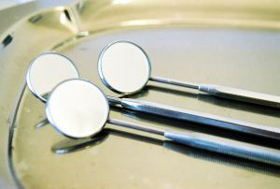
Thirty states are projecting budget shortfalls for fiscal year 2013, and are making up the deficit by hiring more auditors — some targeting dental practices.
Thirty states are projecting budget shortfalls, totaling $54 billion, according to a recent Center on Budget and Policy Priorities announcement. There’s anecdotal evidence that states are making up the deficit by hiring more auditors — some are targeting dental practices among other industries.
“I have seen first-hand an increase in sales tax audits of my dental practice clients,” says Terry O’Reilly, a health care partner with CliftonLarsonAllen. A recent Washington Times article supports this experience.
Most dentists probably think they have limited exposure for sales tax. In most states, the services they provide are exempt from sales tax, so what’s the risk?
“Use tax is sales tax’s evil twin,” says O’Reilly. "If you purchase supplies or equipment from out-of-state vendors, you may be required to self-assess and remit use tax.”
Don’t forget about use tax
Out-of-state merchants generally are not required to collect sales tax on items you purchase, so often times they don’t. But that doesn’t mean you are off the hook. In situations where the sales tax hasn’t been collected by the vendor, you are still required to self-assess and remit use tax.
When a sales tax auditor comes into your practice, they are likely to look at two to three years of activity. Over that period, many small supply purchases or a few large equipment purchases can add up to a significant sales and use tax bill.
Keep good records in the event of an audit
Many dental practices are making their purchases with credit cards. It’s convenient, and many card companies provide purchasing incentives. However, credit card statements are not considered good records in a tax audit because they do not provide the necessary details. You need to keep the receipts and invoices along with the credit card statement. Without good documentation, an auditor usually will assume a purchase is taxable and will asses use tax.
“We generally recommend business records be kept for seven years,” says O’Reilly. “It seems like a long time, but you’ll be glad you kept those file boxes if an auditor shows up at your office.”
Know what is and isn’t tax exempt
The rules will vary by state, but in many states supplies used in direct patient treatment will be exempt. However, certain supplies that come in direct contact with the patient are still taxable because they are considered to be used for diagnostic or sanitary purposes, rather than for treatment.
“You should be familiar with the rules as they apply to dental practices in your state,” says O’Reilly. “Don’t assume your vendors are handling it properly. Upon audit, you, not your vendor, will be writing the check.”
How we can help
Sales tax audits are on the rise. We can help dental practices prepare by reviewing purchase and sales invoices to see if the proper tax has historically been paid. If it hasn’t, we can quantify the exposure and help practices determine if they should voluntarily file and pay the tax in order to avoid interest and penalties.
